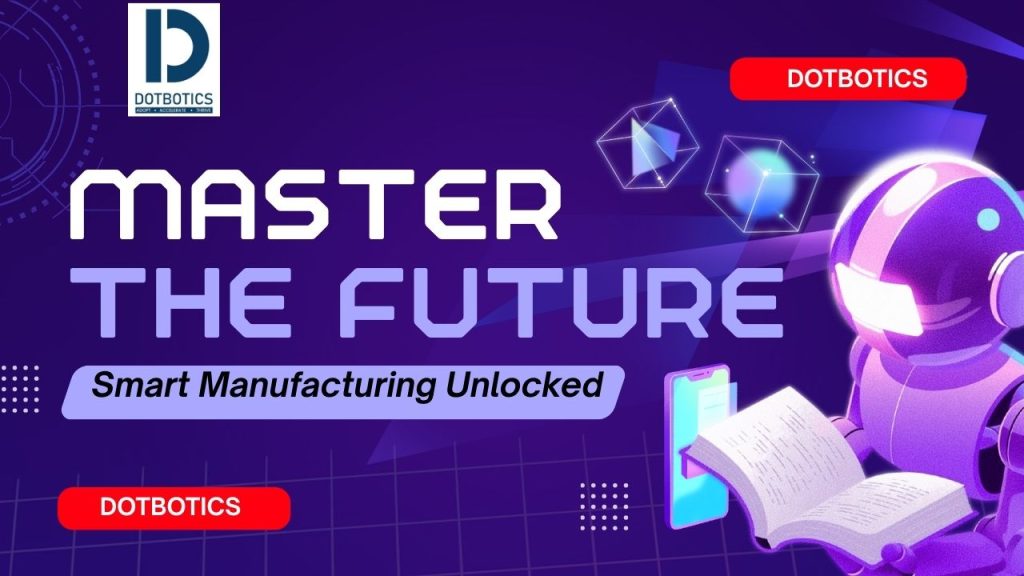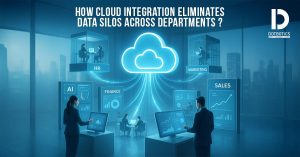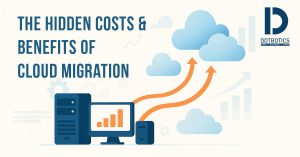In today’s hyper-competitive market, manufacturers face constant pressure to innovate, optimize, and deliver more with limited resources. The age of traditional, siloed operations is long gone. Instead, businesses are rapidly embracing smart manufacturing, where digital technologies seamlessly integrate to create intelligent, data-driven ecosystems. At the heart of this transformation lies the powerful combination of Enterprise Resource Planning (ERP) and Artificial Intelligence (AI).
This partnership is not just about automation—it’s about unlocking new levels of efficiency, productivity, and decision-making. Let’s explore how AI-enhanced ERP systems are reshaping the manufacturing industry, and why companies that embrace this synergy are future-proofing their operations.
Why ERP Alone Isn’t Enough Anymore
ERP systems have long been the backbone of manufacturing enterprises. They integrate core business processes—such as procurement, inventory, production, sales, supply chain, and finance—into a single, centralized platform. This eliminates redundancies, reduces errors, and ensures that decision-makers have a holistic view of the organization.
However, as manufacturing processes become increasingly complex and globalized, traditional ERP faces limitations:
- Data overload without actionable insights
- Reactive rather than predictive decision-making
- Lacks flexibility in responding to fast-changing supply chain conditions or demand fluctuations.
- Lack of real-time problem detection
This is where AI comes into play. By embedding AI into ERP, companies can turn static data into dynamic intelligence.
The AI Advantage in Manufacturing ERP
Artificial Intelligence transforms ERP from being a system of record to a system of prediction, recommendation, and automation. Below are key areas where AI is making a tangible difference:
- Predictive Maintenance
Unexpected machine breakdowns are one of the biggest cost drivers in manufacturing. AI-driven ERP systems analyze real-time sensor data from equipment to predict failures before they occur. This ensures:
- Reduced downtime
- Lower repair costs
- Extended equipment lifespan
For example, an ERP integrated with AI can automatically schedule maintenance tasks, notify technicians, and order spare parts in advance.
- Smarter Supply Chain Management
Manufacturing supply chains are often global, complex, and vulnerable to disruptions. AI-powered ERP enhances supply chain visibility by:
- Predicting demand with higher accuracy using historical data, seasonal trends, and external factors like weather or market fluctuations.
- Optimizing routes and logistics to minimize delays.
- Automatically suggesting alternative suppliers in case of shortages.
- Optimized Production Scheduling
Traditional ERP systems rely on fixed scheduling models. But AI brings adaptive scheduling that can adjust production in real time based on resource availability, workforce capacity, and unexpected bottlenecks.
For instance, if one machine is under maintenance, the AI-driven ERP can reassign production to another line, ensuring deadlines are still met without manual intervention.
- Enhanced Quality Control
AI in ERP helps manufacturers maintain superior quality standards by analyzing production data for anomalies. Upon detecting a defect pattern, the system has the capability to:
- Immediately flag the issue
- Halt production before defective batches pile up
- Recommend corrective measures
This proactive quality control reduces wastage, improves customer satisfaction, and enhances compliance with industry standards.
- Workforce Productivity and Safety
With AI-powered ERP, manufacturers can track worker performance, predict skill gaps, and design personalized training programs. Additionally, AI algorithms analyzing workplace safety data can forecast potential hazards and suggest preventive actions—leading to a safer and more efficient workforce.
- Real-Time Decision Support
ERP dashboards equipped with AI deliver intelligent insights, not just raw numbers. Managers can access recommendations like:
- Which supplier offers the best balance of cost and reliability
- How much inventory should be held to avoid both stockouts and overstocking
- Which production line requires immediate optimization
This kind of real-time support empowers leaders to make faster, smarter decisions.
Benefits of AI-Powered Manufacturing ERP
Incorporating AI into ERP platforms unlocks powerful benefits:
- Operational Efficiency – Automation reduces manual intervention, eliminating errors and freeing up employees for higher-value tasks.
- Cost Reduction – Using predictive insights allows companies to prevent waste, reduce downtime, and save on unnecessary expenses.
- Agility and Resilience – Manufacturers can swiftly adapt to changing market dynamics.
- Data-Driven Culture – AI ensures that every decision is backed by real-time insights, not guesswork.
- Sustainable Manufacturing – Optimized processes reduce energy usage, material waste, and carbon footprint.
Real-World Examples of AI-ERP in Action
- Automotive Manufacturing
Leading car manufacturers use AI-driven ERP systems to forecast demand for specific car models. This helps align production schedules with dealership needs while minimizing surplus inventory.
- Electronics Industry
AI-powered ERP detects micro-defects in circuit boards during production using computer vision. This ensures consistent quality and reduces warranty claims.
- Food and Beverage
AI predicts shelf-life based on storage conditions and automatically adjusts distribution schedules to minimize spoilage.
These examples show that AI-ERP integration is not just theoretical—it’s already revolutionizing industries.
Challenges in AI-ERP Adoption
Although AI-driven ERP holds great promise for manufacturing, its implementation comes with challenges:
- High Initial Costs – AI-driven ERP systems often involve high upfront costs.
- Data Quality Issues – AI delivers reliable results only when supported by high-quality data; bad data results in faulty outcomes.
- Change Management – Employees may resist adopting new systems, requiring proper training and change management strategies.
- Integration Complexity – Legacy systems may not easily integrate with modern AI-enabled ERPs.
Manufacturers must plan carefully, starting with pilot projects and scaling gradually to minimize risks.
The Road Ahead: What’s Next for Manufacturing ERP and AI?
The future of manufacturing ERP lies in deeper AI integration alongside other emerging technologies like IoT, blockchain, and digital twins. We can expect:
- Self-optimizing factories where AI continuously fine-tunes production in real time.
- Hyper-personalized products are manufactured based on predictive insights into consumer preferences.
- Collaborative AI-human workflows where AI handles repetitive tasks and humans focus on creativity and innovation.
In short, AI-ERP integration is steering the industry toward Industry 5.0, where technology and human intelligence work in harmony to create smarter, more sustainable, and more customer-centric manufacturing systems.
Conclusion
Manufacturing is no longer just about producing goods—it’s about creating intelligent, adaptive ecosystems that can thrive in a fast-changing world. ERP systems provided the foundation, but AI is the catalyst that transforms them into powerful engines of growth.
Manufacturers who embrace AI-powered ERP today are setting the stage for tomorrow’s success—where efficiency, resilience, and innovation aren’t just goals but daily realities.
The factory of the future is here—and it’s powered by the synergy of ERP and AI.



